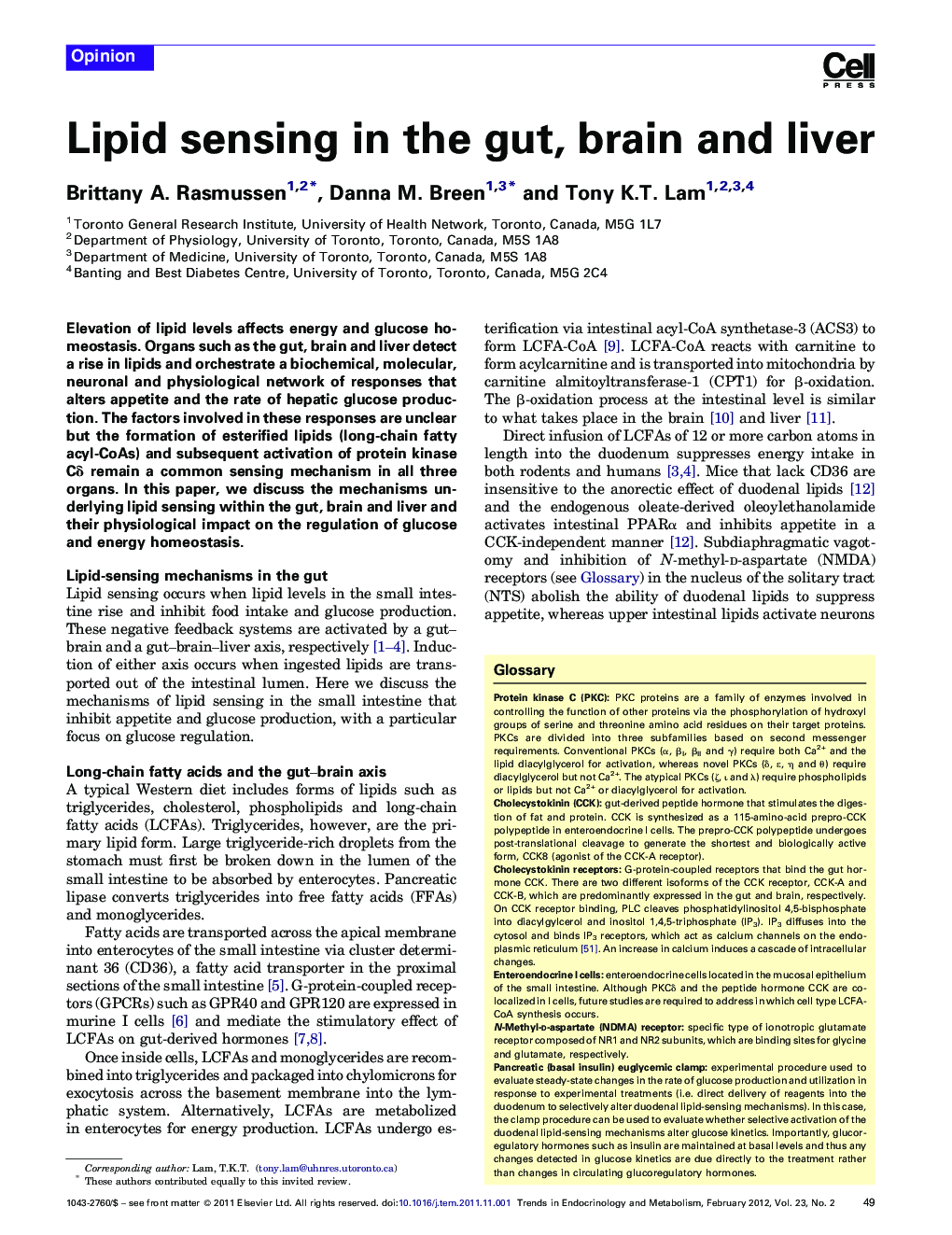| Article ID | Journal | Published Year | Pages | File Type |
|---|---|---|---|---|
| 2810443 | Trends in Endocrinology & Metabolism | 2012 | 7 Pages |
Abstract
Elevation of lipid levels affects energy and glucose homeostasis. Organs such as the gut, brain and liver detect a rise in lipids and orchestrate a biochemical, molecular, neuronal and physiological network of responses that alters appetite and the rate of hepatic glucose production. The factors involved in these responses are unclear but the formation of esterified lipids (long-chain fatty acyl-CoAs) and subsequent activation of protein kinase Cδ remain a common sensing mechanism in all three organs. In this paper, we discuss the mechanisms underlying lipid sensing within the gut, brain and liver and their physiological impact on the regulation of glucose and energy homeostasis.
Related Topics
Life Sciences
Biochemistry, Genetics and Molecular Biology
Endocrinology
Authors
Brittany A. Rasmussen, Danna M. Breen, Tony K.T. Lam,
